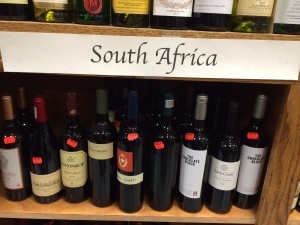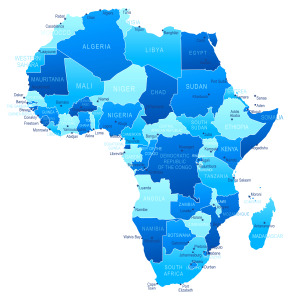With attention turned towards the renewal of the African Growth & Opportunity Act
(AGOA), some have called for South Africa to be graduated from the duty preference
program because of its well-developed infrastructure and labor force. Some have also
raised the issue of certain non-tariff barriers said to exist that prevent U.S. companies
from entering the South African market.

Recently, the U.S. International Trade Commission (USITC) held hearings and invited comments on
AGOA in relation to four investigations covering: (1) AGOA trade and investment performance; (2) the
economic effects of providing duty-free treatment to AGOA-eligible countries; (3) possible changes to
AGOA’s rules of origin to promote regional integration and to increase exports to the U.S.; and 4) the
impact of EU’s free trade agreement with South Africa on U.S. exports.

 The African Growth & Opportunity Act (AGOA) was enacted in 2000 to stimulate trade and investment between the United States and Sub-Saharan Africa. Since 2000, AGOA has been credited with more than doubling U.S. trade with AGOA-eligible countries. Today, African markets are growing rapidly, and trade and investment opportunities abound. With AGOA set to expire on September 30, 2015, the discussion about AGOA renewal has begun.
The African Growth & Opportunity Act (AGOA) was enacted in 2000 to stimulate trade and investment between the United States and Sub-Saharan Africa. Since 2000, AGOA has been credited with more than doubling U.S. trade with AGOA-eligible countries. Today, African markets are growing rapidly, and trade and investment opportunities abound. With AGOA set to expire on September 30, 2015, the discussion about AGOA renewal has begun. The case for regional integration in Africa has been made, by Donald Kaberuka, President of the African Development Bank, as well as by other well-known African authorities. So the question that now arises is how can regional integration be accomplished? Large amounts of money – both public and private – are being expended for transportation infrastructure. Yet, there is an institutional deficiency that substantially impedes regional integration. It is the customs red tape and paper work at the border. These non-tariff barriers that cause customs delays and uncertainty obstruct regional integration just as much as inadequate infrastructure, thereby preventing Africa from finding its place in the 21st Century global value chain.
The case for regional integration in Africa has been made, by Donald Kaberuka, President of the African Development Bank, as well as by other well-known African authorities. So the question that now arises is how can regional integration be accomplished? Large amounts of money – both public and private – are being expended for transportation infrastructure. Yet, there is an institutional deficiency that substantially impedes regional integration. It is the customs red tape and paper work at the border. These non-tariff barriers that cause customs delays and uncertainty obstruct regional integration just as much as inadequate infrastructure, thereby preventing Africa from finding its place in the 21st Century global value chain. Signed into law by President Clinton on May 18, 2000 and subsequently expanded, the African Growth and Opportunity Act (AGOA) is a unilateral system of trade preferences that allows thousands of types of goods produced in Sub-Saharan Africa to be imported duty-free to the United States.
Signed into law by President Clinton on May 18, 2000 and subsequently expanded, the African Growth and Opportunity Act (AGOA) is a unilateral system of trade preferences that allows thousands of types of goods produced in Sub-Saharan Africa to be imported duty-free to the United States.